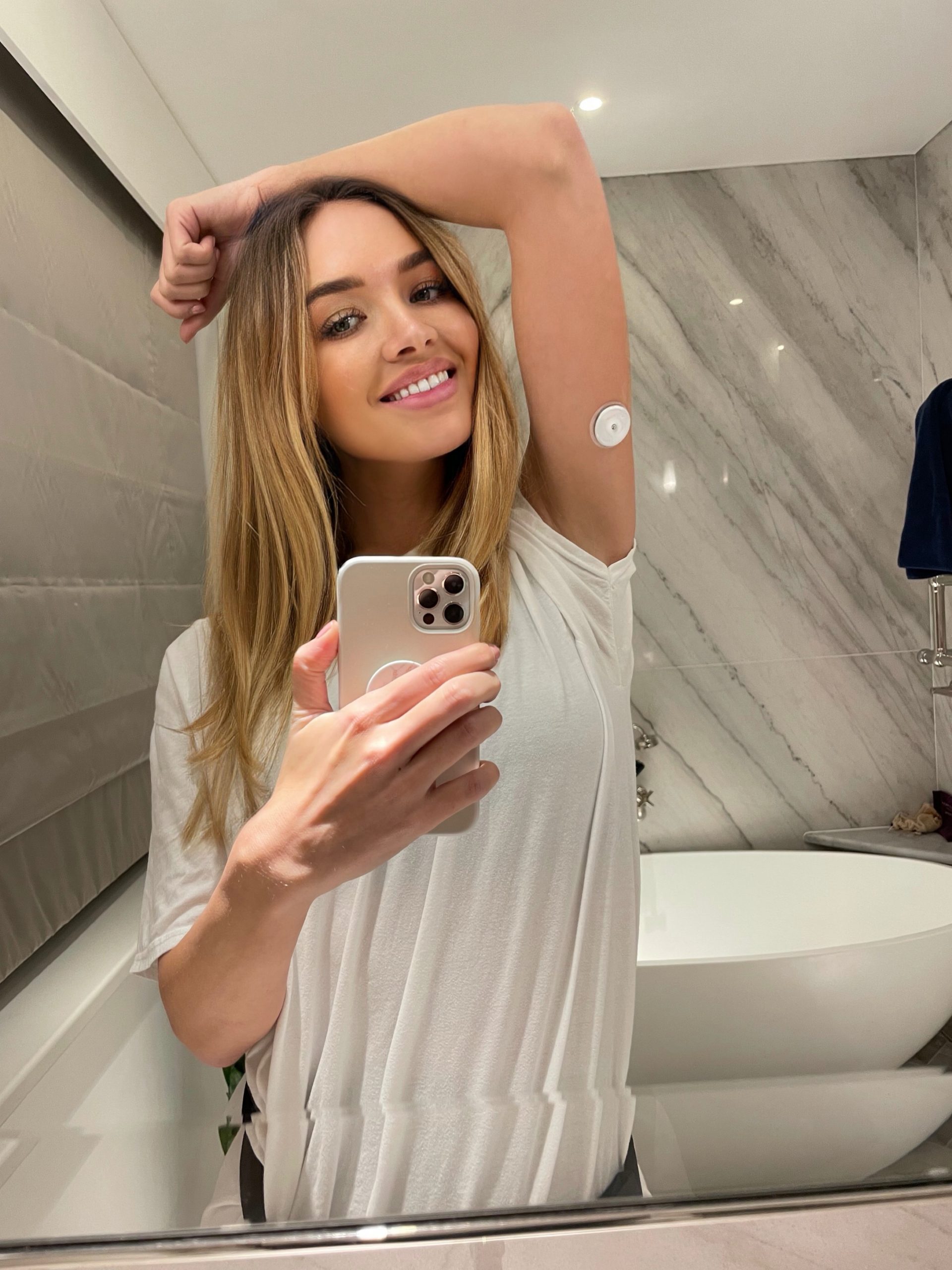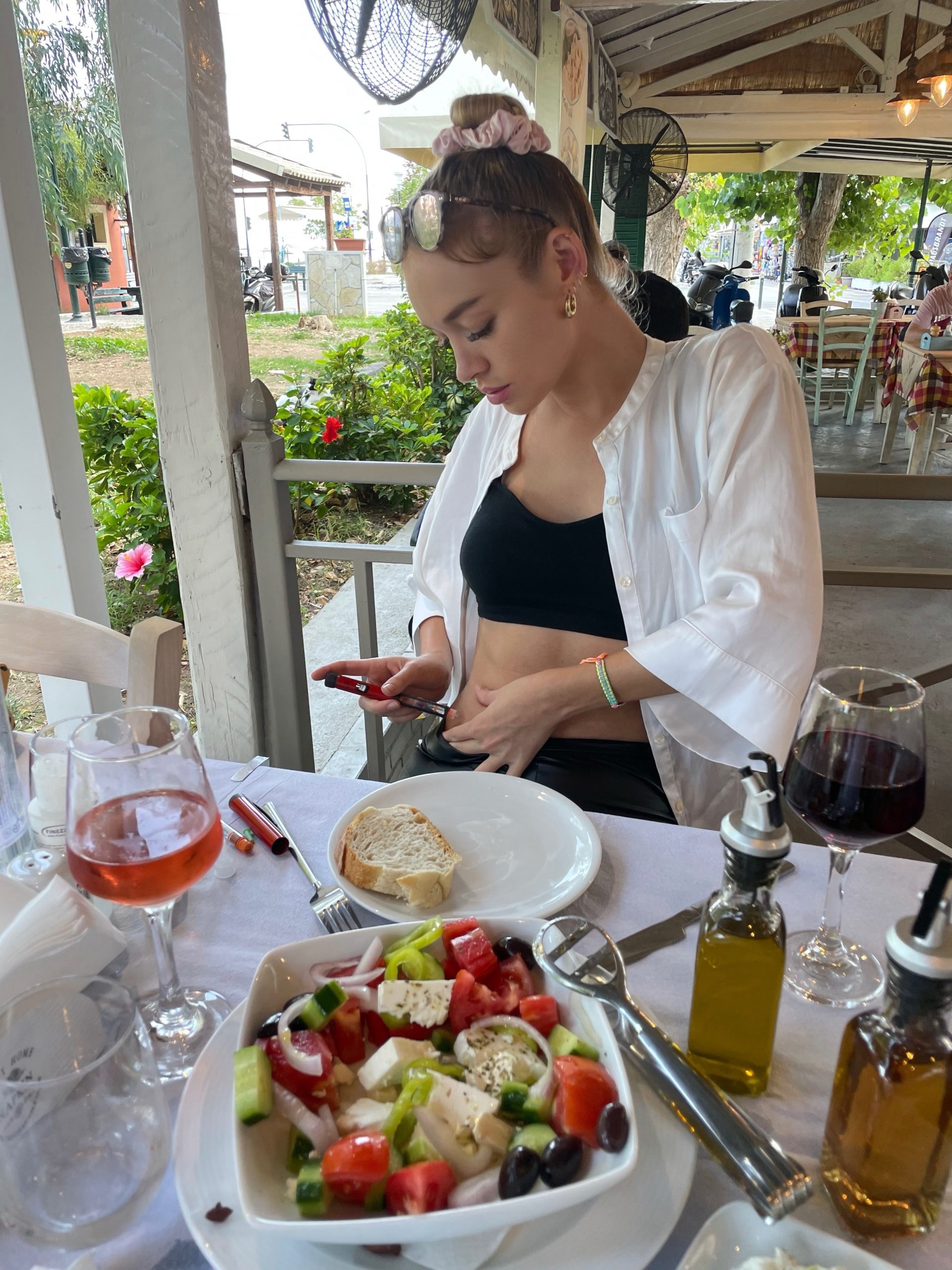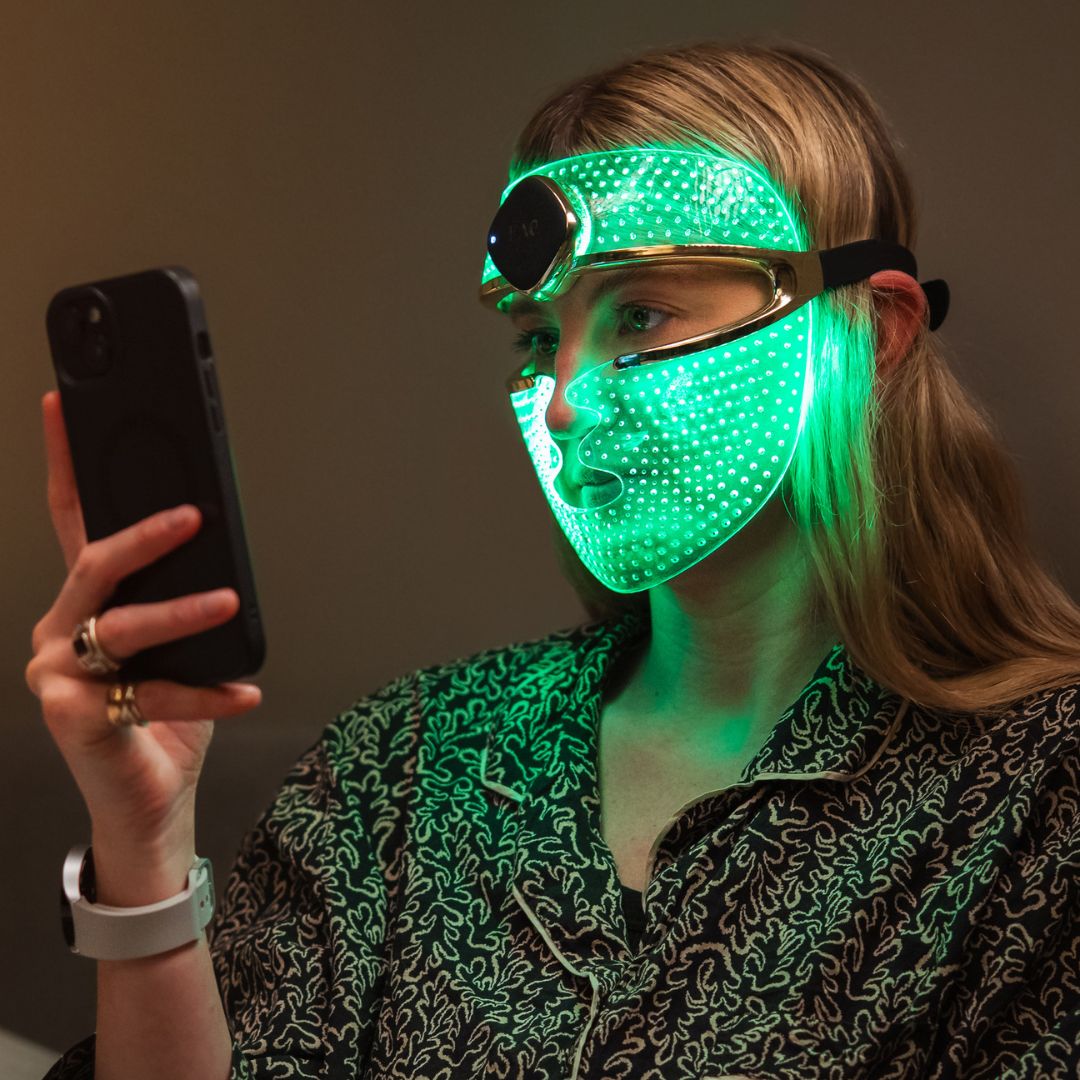Roxy Horner exclusively opens up about being diagnosed and living with diabetes
'It’s not even been six months since my diagnosis and I’m already seeing things a lot more positively now,' says Roxy Horner ahead of World Diabetes Day. 'One thing I know is that I refuse to let this effect my future negatively, I hope by speaking about it, that will help others know they’re not alone.'


'It’s not even been six months since my diagnosis and I’m already seeing things a lot more positively now,' says Roxy Horner ahead of World Diabetes Day. 'One thing I know is that I refuse to let this effect my future negatively, I hope by speaking about it, that will help others know they’re not alone.'
Roxy Horner is one of the most talked-about women in the country, and ever since her 17-year-old debut in British Vogue, she has become one of Britain’s most successful models.
From her Coco De Mer and Max Factor campaigns to achieving power couple status with comedian boyfriend Jack Whitehall, Roxy Horner is quickly becoming a household name.
Earlier this year, there was public concern over the 30-year-old's health following news that she had been hospitalised. This is something that she has now opened up about in an exclusive interview with Marie Claire UK, sharing that she was diagnosed with type 1 diabetes in May 2021.
World Diabetes Day falls this Sunday and as an ambassador for Diabetes UK, Roxy is determined to use her platform and respected voice to raise awareness.
While supporting the #NailingDiabetes campaign, the inspirational Roxy has decided to bravely speak out for the first time since her diagnosis.
Here, ahead of World Diabetes Day, Roxy talks to MC Features Editor Jenny Proudfoot about living with diabetes...
Marie Claire Newsletter
Celebrity news, beauty, fashion advice, and fascinating features, delivered straight to your inbox!

What symptoms were you experiencing before you were diagnosed?
Before my diagnosis in May, I had next to no energy, my memory was appalling, I couldn’t focus, I would be laying on the sofa almost unable to move most days, I would randomly throw up. I’ve since found out that stress can make diabetes so much worse, and feel that was definitely a contributing factor. It also seemed to be taking a massive toll on my mental health which seemed then to be taking a toll on physical health - I can’t tell you which one came first. Either way, I sometimes blame myself for not speaking up enough when I needed peace and quiet, for not always putting my health first. I’m trying to also learn to manage my stress levels now as well as my diabetes, as they often go hand in hand.
What finally prompted you to visit the doctor?
I had been speaking to the doctors about how unwell I had been feeling. I remember a specific phone call I made to my doctor before I ended up in hospital. I was in bed for days crying just feeling awful and not knowing why, I just felt like I was going to die. I ended up taking myself to A&E in the end which is where I was diagnosed.
Did your diagnosis come as a shock?
To some extent yes, but not long before my diagnosis I posted a photo of a four litre bottle of water to my “close friends list” on Instagram stories, asking “is it normal to go through 2 of these a day?” I have always drank so much water all my life but recently it had become a bit of a joke how much I was drinking. It has never been for any reason other than the fact I was that thirsty and one of my friends who is also living with type 1 diabetes replied and said you need to get checked for diabetes, so that was the first time it had even entered my thoughts, but it was still a massive shock hearing it when I was in hospital.

How do you manage your diabetes now?
In hospital they taught me how to prick my finger to test my blood sugars and how to inject insulin so I’ve stayed managing it this way but I’ve also got the help of wearing my libre in my arm which alerts me if I go too high or too low. That’s been a massive help. Maybe I’ll move onto a pump eventually but for now I’ve just about got comfortable with the daily injecting.
What impact has diabetes had on your life?
I was chronically stressed before I got diagnosed, I wasn’t in my normal peaceful environment (being able to visit my parents in Australia, or going to visit grandparents here in the countryside or just being able to sit in a local park with friends) because it was lockdown. I was craving nature and quietness more than anything in the world but now I understand why - I was not well enough to be doing normal things. I was unknowingly very sick, and what I needed was to rest and recover. Type 1 diabetes has changed my life but the silver lining is that perhaps it has taught me to stand up for myself and listen to my body. I’ve had to take a lot of time out of work but that’s okay, I am only six months into my diagnosis so I needed that break. My agency Premier have been so understanding and supportive. My boyfriend has been incredible. I am so lucky in that respect. I’ve quietly decided to spend less time with the people who haven’t understood. I’m really listening to my body and hoping by next year I’ll be able to get back to my normal self again. I know I will always have diabetes with me and that occasionally I’ll have to take time out but that’s okay. Right now, I’m taking baby steps. I’m trying to get back my peace, surround myself with loving, understanding people and just getting the hang of this. If I have shown up anywhere on my own since my diagnosis, it really has taken a lot for me to get there. Because when you’re new to this, it’s scary going anywhere on your own thinking ‘what If something happens and I can’t manage it on my own?’ Getting diagnosed with an autoimmune disease like type 1 diabetes isn’t just hard for the person who gets diagnosed, it’s really tough for the people close to them too. I appreciate anyone who has stood by me or anyone’s side during a hard time like this.
Where have you found support?
The hospital for the first few months were my biggest support - they were absolutely amazing, but now my family have managed to get to London from Australia to be with me it has helped so much. Coincidentally I also adopted a dog, Coco, a little Cavapoo, the same week of my diagnosis and she has been the most incredible friend and emotional support buddy. She got me through the toughest year of my life.
What do your friends say when you tell them you are living with type 1?
I feel so lucky with all my friends - they have been wonderfully supportive. Especially the ones who understand that sometimes now I just need a chilled night in with them.

What have you learnt about the diabetes community?
I’m still new to this community but so far I’ve learnt that we all have each other’s backs. I think anyone living with an autoimmune disease or any type of illness is such a warrior. I would love to meet more people with type 1.
How are you feeling about living with type 1 diabetes now?
It’s not even been six months since my diagnosis and I’m already seeing things a lot more positively now. One thing I know is that I refuse to let this effect my future negatively, I hope by speaking about it, that will help others know they’re not alone.
Did you know much about diabetes before you were diagnosed?
I really didn’t have a clue but I’ve learnt so much already. I will continue to educate myself.
What do you think is the biggest misconception about diabetes?
People don’t tend to expect someone like me who lives a fairly healthy lifestyle to just get diabetes in their late 20s. [Roxy was diagnosed a month before her 30th birthday] It’s a shocking fact that it can happen to anyone at any age. Lifestyle doesn’t cause type 1 and there isn’t currently a cure. I’ve had people who don’t have diabetes say to me that they think they can cure it and honestly that’s so not true.

What’s the hardest part of living with diabetes?
Probably the days where I can’t manage it, for no reason my blood sugar levels will just yo-yo up super high and then really low. I have days where it knocks me out and I feel really unwell. But that’s just part of it, it’s not always like that and I’ve had many good days since my diagnosis too.
What advice would you give to anyone who has recently been diagnosed with diabetes?
Don’t be too hard on yourself, you’re doing the best you can. If you can learn your carb to insulin ratio that will really help you. Take all the help that is offered to you and most importantly, rest when you need to rest. When I finally got the guts to take myself to hospital, I was only in there for a few days before I discharged myself too soon. I should have stayed longer and rested as the nurses told me to but instead I discharged myself and went straight to an awards ceremony that same day (very silly of me). I was desperately trying to live my life as normal and didn’t want to let people down but I ended up back in hospital that same night because I didn’t know what I was doing. The first few months were really scary and that’s why I didn’t want to talk about it back then, I wanted to wait until I fully understood it myself and I wanted to wait until I had control. I would advise anyone who gets diagnosed with something serious to listen to your health care team and stay with them as long as they think you need to. When I was in hospital that’s when I finally got the help and support I needed. I am forever grateful for the help and support. Life doesn’t stop here, we might need to take a little pause every now and then but you will get up and come back stronger. You’ve got this!
Diabetes UK ambassador Roxy Horner is supporting the #NailingDiabetes campaign this World Diabetes Day.
The challenge encourages the public to paint their nails blue in order to raise awareness of diabetes and consequently make more research breakthroughs possible.
Visit the website for more information.

Jenny Proudfoot is an award-winning journalist, specialising in lifestyle, culture, entertainment, international development and politics. She has worked at Marie Claire UK for seven years, rising from intern to Features Editor and is now the most published Marie Claire writer of all time. She was made a 30 under 30 award-winner last year and named a rising star in journalism by the Professional Publishers Association.
-
 New Look’s spring collection has dropped - As a picky fashion editor, I’m seriously impressed
New Look’s spring collection has dropped - As a picky fashion editor, I’m seriously impressedSpring trends at affordable prices
By Jazzria Harris
-
 I'm the founder of an ethical brand marketplace - why, in the wake of tariff-gate, protecting independent businesses is more important than ever
I'm the founder of an ethical brand marketplace - why, in the wake of tariff-gate, protecting independent businesses is more important than everThis Earth Day, the founder of Wolf & Badger shares why protecting sustainable brands is so pivotal.
By Ally Head
-
 Three ways to enhance your skincare routine with technology
Three ways to enhance your skincare routine with technologyBy Jenny Proudfoot